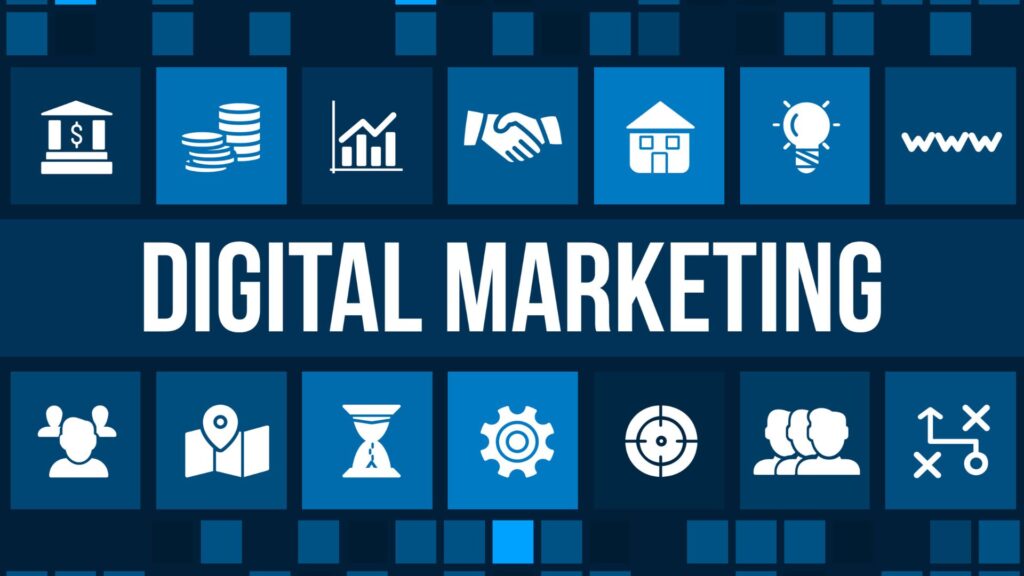
In today’s hyper-connected world, digital marketing has become the backbone of modern business strategy. With billions of people online, the internet offers unmatched opportunities for businesses to reach, engage, and convert audiences. Whether you’re a startup or a global brand, understanding how to leverage digital marketing is essential for growth in the digital age.
What is Digital Marketing?
Digital marketing refers to all marketing efforts that use the internet or electronic devices. It includes a wide range of channels such as search engines, websites, social media, email, mobile apps, and digital advertisements. Unlike traditional marketing, digital marketing allows brands to communicate with their audience in real-time and on a more personal level.
Why Digital Marketing Matters
Digital marketing is not just an option anymore—it’s a necessity. Here’s why it’s so powerful:
- Global Reach: Unlike traditional methods, digital marketing has no geographic limitations.
- Cost-Effective: It’s more affordable than TV, print, or radio ads.
- Measurable Results: Every action is trackable with analytics tools.
- Targeted Audience: Businesses can segment their audiences based on demographics, behavior, and interests.
- Customer Engagement: Allows real-time interaction through comments, likes, shares, and direct messages.
Key Channels of Digital Marketing
1. Search Engine Optimization (SEO)
SEO involves optimizing your website and content to rank higher in search engine results pages (SERPs). The goal is to increase organic traffic by making your site more visible to people searching for relevant keywords.
- On-page SEO: Focuses on content, meta tags, headings, and keyword usage.
- Off-page SEO: Includes backlinks, social signals, and online reputation.
- Technical SEO: Deals with site speed, mobile-friendliness, and crawlability.
2. Pay-Per-Click (PPC) Advertising
PPC is a model where advertisers pay each time their ad is clicked. Google Ads is the most well-known platform, but PPC also spans Facebook Ads, Instagram Ads, LinkedIn Ads, and others.
- Quick results: Drive traffic instantly.
- Targeting options: Narrow down by location, interests, device, and more.
- Performance-based: You only pay for clicks, not impressions.
3. Content Marketing
Content is the foundation of digital marketing. It includes blog posts, videos, infographics, case studies, whitepapers, and more. Content marketing helps:
- Build brand authority
- Educate potential customers
- Improve SEO rankings
- Support other marketing efforts like social media and email
4. Social Media Marketing
Social platforms like Facebook, Instagram, Twitter, LinkedIn, TikTok, and YouTube allow brands to connect with audiences through organic content and paid ads.
- Engage directly with users
- Build community and brand personality
- Share news, promotions, or educational content
- Utilize influencers to expand reach
5. Email Marketing
Despite being one of the oldest digital channels, email marketing remains highly effective when done right.
- Personalized messages
- Automation tools for nurturing leads
- High ROI: Consistently ranks as one of the top-performing channels
6. Affiliate and Influencer Marketing
These involve promoting your products through third parties—affiliates earn a commission per sale, while influencers get paid for exposure or content creation.
- Low-risk performance-based model
- Expands brand reach
- Drives trust through endorsements
7. Video Marketing
Videos are dominating digital content in 2025. From explainer videos to live streams and product demos, video content improves engagement and conversion rates.
- Increases retention
- Builds trust quickly
- Great for social and landing pages
Benefits of Digital Marketing
- Scalability: You can start small and scale up campaigns as your budget grows.
- Real-Time Analytics: Track performance immediately through tools like Google Analytics, Meta Business Suite, or HubSpot.
- Better Conversion Rates: Targeted campaigns result in more qualified leads.
- Personalization: Dynamic ads and personalized emails improve user experience.
- Brand Development: Consistent messaging across channels builds a strong digital presence.
Digital Marketing Strategy: Steps to Success
1. Define Your Goals
Start with specific objectives—brand awareness, lead generation, sales, or customer retention.
2. Understand Your Audience
Create detailed buyer personas based on age, gender, interests, challenges, and behaviors.
3. Choose the Right Channels
Don’t try to be everywhere. Focus on the platforms your audience uses most.
4. Create Valuable Content
Content should educate, entertain, or inspire. Align it with customer pain points and questions.
5. Optimize for SEO and Mobile
Ensure your site loads fast, is mobile-friendly, and follows SEO best practices.
6. Use Marketing Automation
Automate repetitive tasks like email follow-ups, lead scoring, and social posting.
7. Measure and Improve
Use KPIs (key performance indicators) like traffic, CTR, CPC, CPA, and ROI to assess success and pivot accordingly.
Latest Trends in Digital Marketing (2025)
- AI-Powered Marketing: Tools like ChatGPT and Jasper are automating content and customer service.
- Voice Search Optimization: With smart speakers, optimizing for voice queries is essential.
- Interactive Content: Quizzes, polls, and live Q&A sessions boost engagement.
- Zero-Click Searches: Optimize for Google snippets and knowledge panels.
- Privacy and Data Ethics: Transparent use of customer data builds trust and meets legal standards (GDPR, CCPA).
Common Mistakes to Avoid
- Ignoring Mobile Optimization
- Lack of clear goals or KPIs
- Overlooking analytics and data
- Not testing different versions of content/ads
- Being inconsistent with branding
Digital Marketing Tools Worth Exploring
- SEO: Ahrefs, SEMrush, Google Search Console
- PPC: Google Ads, Meta Ads Manager
- Social Media: Hootsuite, Buffer, Sprout Social
- Email: Mailchimp, Klaviyo, ConvertKit
- Analytics: Google Analytics 4, Hotjar, Mixpanel
- Content: Grammarly, Surfer SEO, Canva, ChatGPT
Conclusion
Digital marketing is no longer just about having a website or running a few ads. It’s about creating integrated strategies that engage customers at every stage of the buyer journey. Whether you’re producing a compelling video, writing a high-converting blog post, or launching a paid campaign, every element must work together toward your brand’s goals.
Businesses that invest in digital marketing today aren’t just keeping up—they’re gaining a competitive advantage that will only grow in the future.